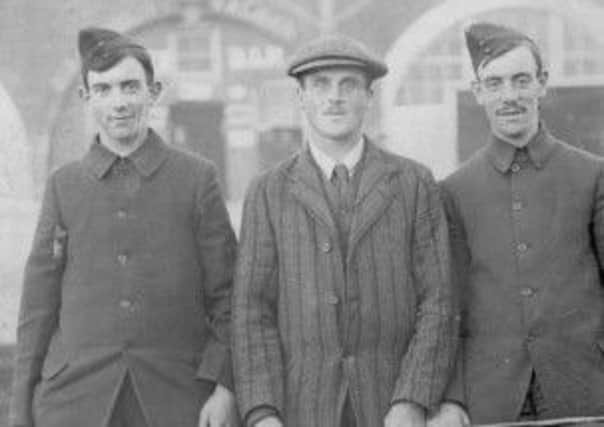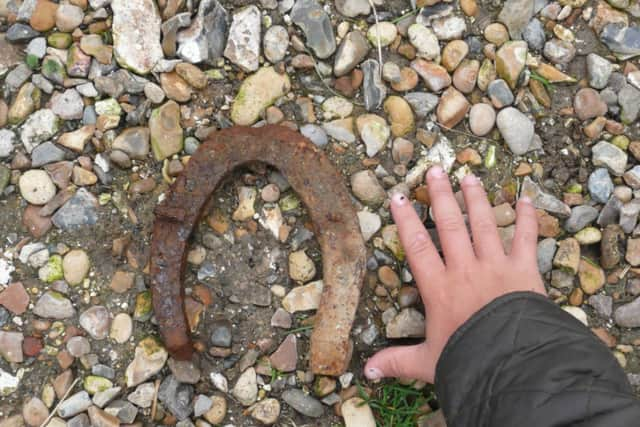Personal stories unearthed from First World War camp


Training for War, the Heritage Lottery funded project exploring Shoreham Camp, has uncovered a wealth of the information about recruits, colonials and convalescents.
The year-long project is being organised by Worthing Museum, with the help of Worthing College, adult volunteers and a range of local partners.
Advertisement
Hide AdAdvertisement
Hide AdIn August 1914, Field Marshall Kitchener put out the call for volunteer recruits to join a new British army. Shoreham Camp began primarily as one of the training grounds for these new soldiers.


Thanks to their great-nephew, Henry Finch, we know that two of the new recruits were Arthur and Edmund (Ned) Goodchild.
The brothers grew up in Grundisburgh, Suffolk, and joined the 9th Suffolk regiment, who were sent to Shoreham Army Camp to train.
Ned, 21, and Arthur, 17, wrote numerous letters home to their mother from the camp and later from the front line. With stories of the local entertainments, the training and their thoughts and feelings about being young recruits, we have gained great insights into life in the early years in Shoreham camp.
Advertisement
Hide AdAdvertisement
Hide AdThe brothers were first put up in bell tents in the Buckingham Park and Slonk Hill area. Arthur wrote that his experience in the tents showed him ‘what rough life is, I shan’t know how to feel when I sleep in a bed again and have my meals off a table, after sleeping on the floor and having . . . my knees or the floor for a table’. This information is quoted on http://goodchilds.org and provided courtesy of Henry Finch.
Due to bad weather, the brothers were billeted in the local towns over winter until they were returned to the camp to stay in newly-built huts in the spring.
Another recruit, Gilbert Frankau, described just how bad the weather got in his book, Peter Jackson, Cigar Merchant: “Tents lay in writhing coils; from under them, men crawled, mud-soaked and cursing; the stockbroker, in gum-boots and pyjamas, a British Warm coat to complete the costume, alternately damned their eyes and adjured them to ‘buck up’.”
Gilbert had joined the army as a young commissioned officer and while at Shoreham, transferred to the Royal Field Artillery (RFA).
Advertisement
Hide AdAdvertisement
Hide AdHis book is a semi-fictional account of his experiences in Shoreham Camp and offers an RFA officer’s perspective of camp life.
For example, the RFA was stationed in a specific area of the camp, known as Happy Valley, where the horses would be trained.
His daily duties included administrative tasks and conducting inspections, he had a batman to pull his bath in the morning and he could ride his horse to the Officer’s Mess of an evening.
The brothers and Gilbert were all sent to the front line in late 1915. Arthur and Gilbert made it home, Ned sadly did not return.
Advertisement
Hide AdAdvertisement
Hide AdAs the war progressed, Shoreham camp went on to train conscripted men and provide recovery and training for men who had been treated for injury before they returned to the front line. It also housed colonial troops, including thousands of Canadians from 1916 on and later South Africans.
More stories from these men and others from the camp will feature in the exhibition of all the findings, which will go on display at Worthing Museum, in Chapel Road, Worthing, for four weeks from April 25.
People can keep up-to-date with their efforts at www.shorehamww1camp.org